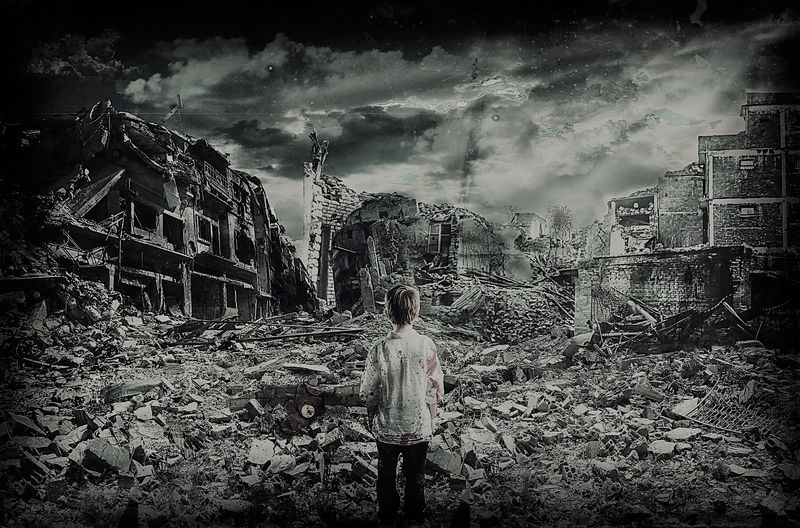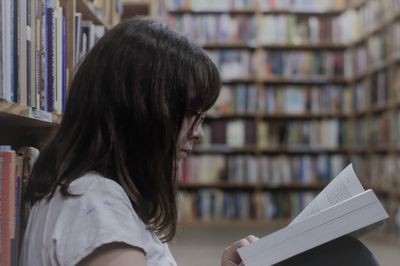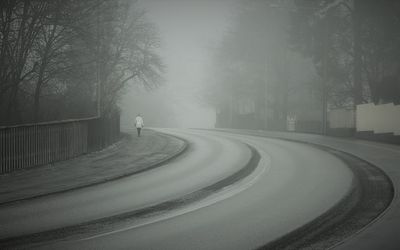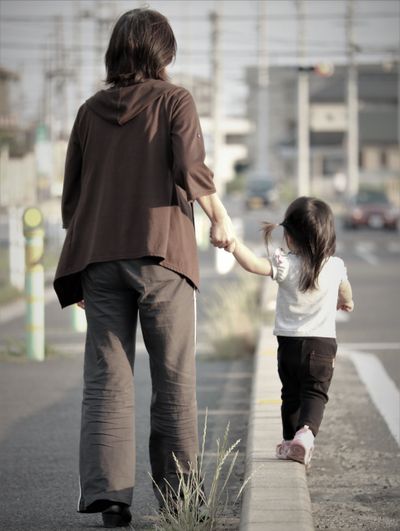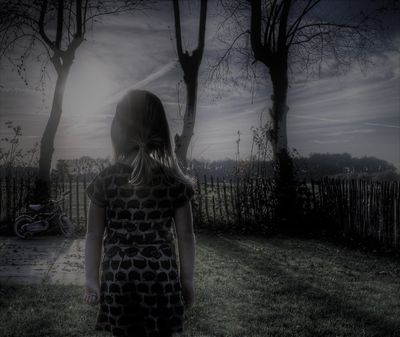Apologies Are More than Just Words, Apologies Mean Nothing Without Action
Apologize
An apology is defined by the Merriam-Webster dictionary as; an admission of error or discourtesy accompanied by an expression of regret and an expression of regret for not being able to do something.
The formal apologies were issued to address the horrors experienced by Indigenous children at residential schools, and the effects the schools had on the children, their parents, and any children they had. It created a trauma that is still experienced by Indigenous people today. The residential schools failed at the complete assimilation of Indigenous people and instead fueled a wave of anger felt generations later. The wish is for the government of Canada to not only recognize their error but also ensure it does not continue to happen in any form.
I am sorry. They are sorry. We are sorry. We are sorry. We are sorry. I am sorry. They are sorry. We are sorry. We are sorry. We are sorry. I am sorry. They are sorry. We are sorry. We are sorry. We are sorry.
I am sorry. They are sorry. We are sorry. We are sorry. We are sorry. I am sorry. They are sorry. We are sorry. We are sorry. We are sorry.
This has been said so many times to the Indigenous people of Canada. So many apologies, very little if any follow through to better the behaviour or even stop the bad behaviour at all.
Formal Apologies for Residential Schools in Canada
Below is a list of formal apologies issued towards the Indigenous people of Canada. Acknowledgment of the wrongs done by the residential school system began in the 1980s.
- In 1986, the first apology for residential schools by any institution in Canada was from the United Church of Canada in Sudbury, Ontario.
“We imposed our civilization as a condition of accepting the gospel. We tried to make you be like us and in so doing we helped to destroy the vision that made you what you were. As a result, you, and we, are poorer and the image of the Creator in us is twisted, blurred, and we are not what we are meant by God to be. We ask you to forgive us and to walk together with us in the Spirit of Christ so that our peoples may be blessed and God's creation healed.” Reverend Bob Smith.
- The Roman Catholic Church issued an apology in 1991. Bishops and other religious figures in Canada collectively issued the apology.
“We are sorry and deeply regret the pain, suffering, and alienation that so many experienced. We have heard their cries of distress, feel their anguish, and want to be part of the healing process...we pledge solidarity with the aboriginal peoples in their pursuit of recognition of their basic human rights... urge the federal government to assume its responsibility for its part in the Indian Residential Schools... (and) urge our faith communities to become better informed and more involved in issues important to aboriginal peoples.”
- Later on, in 1991, another apology from the religious leaders was issued.
“We apologize for the part we played in the cultural, ethnical, linguistic and religious imperialism that was part of the European mentality and, in a particular way, for the instances of physical and sexual abuse that occurred in these schools...For these trespasses, we wish to voice today our deepest sorrow and we ask your forgiveness and understanding. We hope that we can make up for it being part of the healing process wherever necessary… the need to come again to that deep trust and solidarity that constitutes families. We recognize that the road beyond past hurt may be long and steep, but we pledge ourselves anew to journey with the Native Peoples on that road.” Douglas Crosby, former president of the Oblate of Canada.
- In 1993, Peter Hans Kolvenbach, then Superior General of the Society of Jesus gave an apology for the actions of Jesuits in the Western missions and in the "ways the church was insensitive toward your tribal customs, language, and spirituality... The Society of Jesus is sorry for the mistakes it has made in the past"
- Again in 1993, Archbishop Michael Peers apologized to residential school survivors, on behalf of the Anglican Church of Canada.
- In 1994, the Presbyterian Church in Canada issued an apology.
“We ask, also, for forgiveness from Aboriginal peoples. What we have heard we acknowledge. It is our hope that those whom we have wronged with a hurt too deep for telling will accept what we have to say. With God's guidance, our Church will seek opportunities to walk with Aboriginal peoples to find healing and wholeness together as God's people.”
- In 1998, the church apologized expressly for the role it played in the residential school system.
“I apologize for the pain and suffering that our church's involvement in the Indian Residential School system has caused. We are aware of some of the damage that this cruel and ill-conceived system of assimilation has perpetrated on Canada's First Nations peoples. For this, we are truly and most humbly sorry... To those individuals who were physically, sexually, and mentally abused as students of the Indian Residential Schools in which The United Church of Canada was involved, I offer you our most sincere apology. You did nothing wrong. You were and are the victims of evil acts that cannot under any circumstances be justified or excused... We are in the midst of a long and painful journey as we reflect on the cries that we did not or would not hear, and how we have behaved as a church...we commit ourselves to work toward ensuring that we will never again use our power as a church to hurt others with attitudes of racial and spiritual superiority. We pray that you will hear the sincerity of our words today and that you will witness the living out of our apology in our actions in the future.” Reverend Bill Phipps.
- In 2004, Nations, Royal Canadian Mounted Police Commissioner Giuliano Zaccardelli issued an apology on behalf of the RCMP for its role in Residential Schools before signing the first Public Safety Protocol with the Assembly of First Nations.
“We, I, as Commissioner of the RCMP, am truly sorry for what role we played in the residential school system and the abuse that took place in the residential system."
- In 2008, Stephan Harper, then Prime Minister of Canada issued the first formal apology from the government to Indigenous people. It was aired live on CBC and was held at the House of Commons. Harper's apology excluded Newfoundland and Labrador on the basis that the government should not be held accountable for pre-Confederation actions.
- In 2009, a delegation of 40 First Nations representatives from Canada and several Canadian bishops had a private meeting with Pope Benedict XVI with the sole purpose of obtaining an apology from The Church.
“His Holiness (the Pope) emphasized that acts of abuse cannot be tolerated in society. He prayed that all those affected would experience healing, and he encouraged First Nations Peoples to continue to move forward with renewed hope.” The Popes’ Statement.
- In 2011, University of Manitoba president David Barnard apologized to the TRC for the institution's role in educating people who operated the residential school system.
- On June 22, 2015, Rachel Notley, Premier of Alberta, issued a formal apology as a ministerial statement in a bid to begin to address the wrongs done by the government to the Indigenous peoples of Alberta and the rest of Canada.
- On June 18, 2015, Manitoba Premier Greg Selinger became the first politician to issue a formal apology for the government's role in the Sixties Scoop, the large-scale adoption scheme that saw thousands of Indigenous children forcibly removed from their parents in the 1960s and yet continues into the present.
- In 2016, Ontario Premier Kathleen Wynne apologized at the Legislative Assembly of Ontario on behalf of the provincial government for the harm done at residential schools.
“One of the most shameful chapters in Canadian history"
- In 2017, Prime Minister Justin Trudeau issued a formal apology to former Innu, Inuit, and NunatuKavut school survivors and their families during a ceremony in Happy Valley-Goose Bay, Labrador. He acknowledged that students experienced multiple forms of abuse linking their treatment to the colonial thinking that shaped the school system.
- In 2018, The University of British Columbia president Santa Ono apologized to residential school victims.
“On behalf of the university and all its people, I apologize to all of you who are survivors of the residential schools, to your families and communities, and all Indigenous people for the role this university played in perpetuating that system...We apologize for the actions and inaction of our predecessors and renew our commitment to working with all of you for a more just and equitable future.”
- In 2021, the Canadian Conference of Catholic Bishops gave out a formally issued apology.
“We, the Catholic Bishops of Canada, gathered in Plenary this week, take this opportunity to affirm to you, the Indigenous Peoples of this land, that we acknowledge the suffering experienced in Canada’s Indian Residential Schools. Many Catholic religious communities and dioceses participated in this system, which led to the suppression of Indigenous languages, culture, and spirituality, failing to respect the rich history, traditions, and wisdom of Indigenous Peoples. We acknowledge the grave abuses that were committed by some members of our Catholic community; physical, psychological, emotional, spiritual, cultural, and sexual.”
Forty Years of Apology for Centuries of Abuse
Nearly 1500 words in forty years to apologize for decades and centuries of cultural genocide committed against Indigenous people in Canada. Do these words of apology even matter? Forty entire years of apologizing and yet the apologies amount to nothing. The behaviour of systematic genocide is still being committed against Indigenous people by incarceration to Canadian prisons for petty crimes. Missing and murdered Indigenous women continue to stay missing because society sees them as less than human for being forced to live the lives that they had been living.
The elders present at the first formal apology refused to accept the apology and chose to receive the apology, believing further work needed to be done.
Indigenous leaders responded to one of the many formal apologies by insisting that while apologies were welcomed, action – including a federal apology, the reunification of families, compensation, and counselling for victims – must accompany words for them to have real meaning.
Apologies need action to accompany the words. Otherwise, it means nothing. The behaviours and actions being apologized for will just continue. They won’t be stopped with just words. One way to use action is to prevent the removal of Indigenous children from non-abusive homes and to stop placing them far from their families. Use action!

